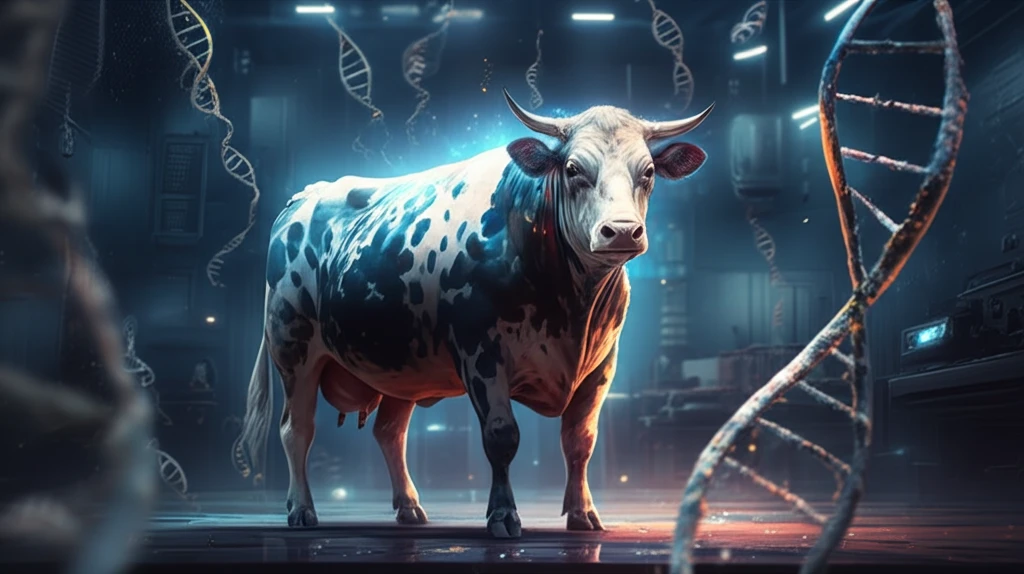
Maximizing Holstein Bull Fertility: A Data-Driven Guide to Semen Quality
"Unlock the secrets to optimal semen production in Holstein bulls with our comprehensive analysis of age, management, and genetic factors."
In the dairy industry, Artificial Insemination (AI) stands as a cornerstone for enhancing productivity. AI centers, serving as vital sources of frozen semen, face the ongoing challenge of optimizing bull performance to ensure a consistent supply of high-quality semen. This optimization is pivotal for meeting the increasing demands of dairy farming and improving overall reproductive efficiency.
Factors influencing semen quality and production are multifaceted, encompassing genetics, environmental conditions, and management practices. Among these, the age of the bull plays a significant role, influencing semen volume, sperm motility, and concentration. Understanding how these factors interact is crucial for developing targeted strategies that enhance semen production and fertility rates.
This article delves into the findings of a comprehensive study conducted at Lembang and Singosari AI Centers in Indonesia, which investigated the impact of age and bull management on fresh semen quality and frozen semen production in Holstein bulls. By analyzing a substantial dataset spanning several years, the study provides valuable insights into optimizing bull management practices for enhanced semen production.
How Age Affects Semen Quality and Production in Holstein Bulls

The research, leveraging data from 81 Holstein bulls aged 1-9 years between 2008 and 2016, revealed significant correlations between bull age and various semen characteristics. The analysis considered factors such as fresh semen volume, sperm motility, mass movement, concentration, and frozen semen doses produced at each age. The study employed a nested design to analyze the collected data, providing robust findings on the impact of age on semen quality.
- Semen Volume: Semen volume tended to increase with age, peaking around 7 years old. This suggests that bulls reach their maximum semen-producing capacity around this age.
- Sperm Concentration: Interestingly, sperm concentration showed a decline after 3 years of age, indicating that while semen volume may increase, the density of sperm cells may decrease with advancing age.
- Frozen Semen Production: Similar to semen volume, frozen semen production, mass movement, and motility showed consistent performance between 3 and 9 years of age. However, there was a noticeable increase in these parameters compared to bulls aged 1 to 2 years.
Practical Implications for AI Centers
The insights from this study offer practical guidance for AI centers seeking to improve semen production efficiency. By strategically managing bulls based on their age, AI centers can optimize semen collection schedules to align with peak semen quality and production periods. For example, focusing collection efforts on bulls aged 3-9 years may yield the highest return in terms of frozen semen doses produced.
